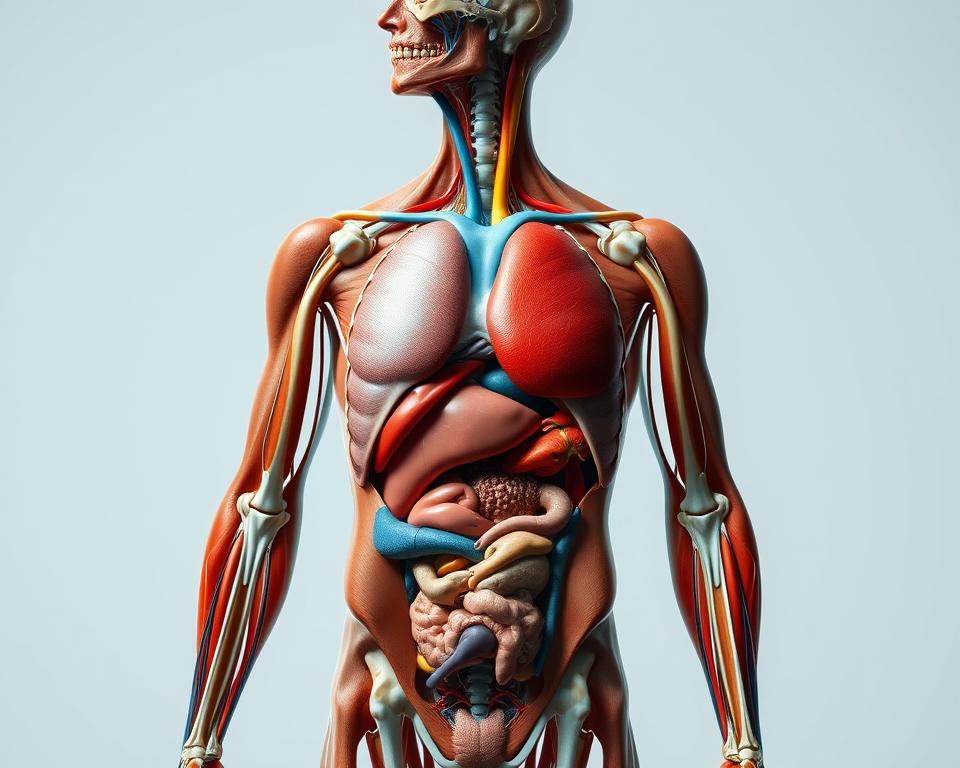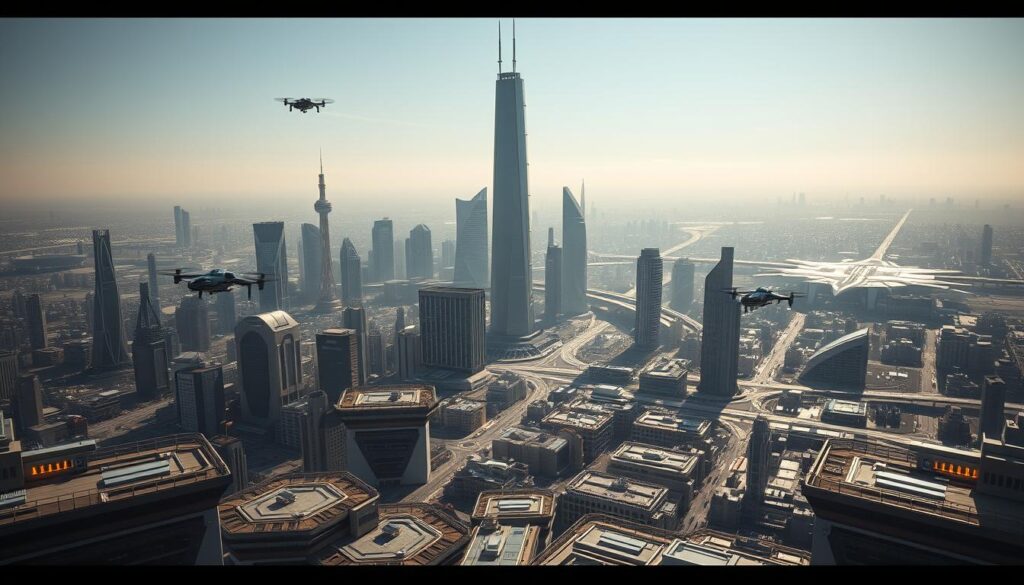Advertisements
questions answers curiosities It is the door to play, to reinforce your general culture and discover facts that you will take on trips and get-togethers.
In this guide, you'll find thematic sections with real-life examples and verified facts: history, geography, science, art, film, and sports. You'll explore milestones such as Gutenberg's printing press (~1440), the first connection that led to the Internet (1969), and Snow White, Disney's first feature film (1937).
Each block integrates questions and context to help you better remember facts: from Russia being the largest country, the Amazon being the longest river, and the Volga being the longest in Europe, to rhodium being the most expensive metal.
This content is informative and cultural; does not promise guaranteed resultsWe encourage you to compare data with reliable sources, avoid information overload, and use these simple dynamics in small or large groups, at home or on the go.
Enjoy learning in company: sharing general knowledge questions can make your routes through museums and cities more entertaining.
Introduction: Why you're drawn to general knowledge questions today
General knowledge connects loose facts with real conversations and unexpected journeys.
When you use general knowledge questions In a talk or game, you foster curiosity and critical thinking in your daily life. They help you place facts and places in the world, from Antarctica being the coldest place to Baikal being the deepest lake.
Today there is a large circulation number of figures. That's why it's a good idea to prioritize specific sources and dates before sharing. Cross-checking data avoids misunderstandings and improves your confidence when explaining something.
- The variety of topics (history, science, art, geography) allows you to connect eras and regions.
- Using questions in games breaks the ice and improves information retention.
- Practical information: The Dead Sea is a hypersaline lake; France is often the main tourist destination; Sweden has more than 267,000 islands.
This content is educational and designed for you to enjoy learning without dogmatism. Before assuming a figure, check the date and source.
How to use this listicle for group play, travel, and learning
Use this listicle as a toolbox for your outings. Here are quick dynamics and practical tips to keep the group having fun and learning about general culture without complications.
Quick dynamics: yes/no, true/false and “the first one that comes to mind”
Try a quick yes/no format to break the ice. Example: "Is the Dead Sea a sea?" No; it's a lake.
Play true/false quizzes while traveling: “The Sagrada Familia is in Madrid.” False; it’s in Barcelona.
Play "the first one that comes to mind": you name a topic (rivers) and the group answers within 3 seconds (Amazon). Set a timer and decide the winner based on correct answers.
Travel and get-together tips: city, museum, and monument challenges
Design challenges for cities: In Paris, name three works of art from the Louvre and locate them on a map. For museums and monuments, pose questions like, "Where is Notre Dame?" in Paris; "And the Taj Mahal?" in Agra, India.
Includes the "country finds" activity: you name the monument and the team names the country. Add "what's it called" cards for capital cities, rivers, and artists.
“Play with respect: confirm schedules, don't block access, and avoid spoilers on guided tours.”
- Express format: yes/no to break the ice.
- Ronda trip: true/false with real examples.
- Local challenges: teams, timer and lightning tiebreakers.
Essential History in Curiosities: From World Wars to the Internet
History concentrates events that changed the course of the world in very specific years.
Key dates and their impact
In 1914 the World War I, and in 1939 the Second World WarThe year 1945 marks the end of the conflict and redraws borders and alliances.
Decisive characters and events
In 1961 Yuri Gagarin He became the first human to orbit the Earth. Watergate, for its part, ended with Nixon's resignation and strengthened the role of journalism.
First times they changed communication
Gutenberg's printing press (1440) multiplied access to books. In 1969, ARPANET, the technical origin of the Internet, was born.
- Which first metal: Copper was the first metal used on a large scale.
- Activity: Ask your group to order these milestones chronologically.
- Always compare years and sources before playing or teaching.
“Relate these milestones to art, science, and communication to see their influence today.”
Geography and places: capitals, long rivers and unique countries
A practical review of places and geographic records to help you play and remember easily.
Long river of the world and of Europe
He longest river in the world It's often referred to as the Amazon; in Europe, the Volga is the longest. Prepare cards with these answers and their countries for your rounds.
Countries with easy-to-remember records
Russia is the which big country By area, France leads tourism as the most visited country, and Sweden has the largest number of islands, nearly 270,000.
Iconic locations and “where to find” challenges
Locate the Taj Mahal in Agra, the Louvre in Paris, and the Sagrada Familia in Barcelona. Use the "where is it located" question to turn each monument into a quick challenge.
Mind maps and practical tips
Create mind maps by continent: add capitals, rivers, and monuments. Use colors for countries, blue for rivers, and brown for mountain ranges; this way you'll know how do you call each element and you will remember better.
- Game: “chain rivers” — name a river and the next player names their country.
- Useful itineraries: Paris (Louvre–Notre Dame) and Barcelona (Sagrada Familia–Passeig de Gràcia).
- Download offline map apps to play offline on your travels.
Check figures like population and tourism before competing; numbers change over time.
Science and nature for curious minds
Discover quick facts about the body, space, and chemistry to fuel your curiosity.
Body and essential functions
An adult has 206 bones. The fur is the largest organ in the body and protects fabrics and temperature.
The brain consumes a lot of energy, which is crucial for your cognitive functions. Try "what's the name" games with bones like the stapes or with organs and their roles.
Universe and missions
Titan is Saturn's largest moon. Proxima Centauri is one of the closest stars to our system.
Neptune has the fastest winds in the solar system. When citing the number of satellites, indicate the year: for example, UNOOSA (2016) reported 4,256 objects, 1,419 of which were active at the time.
Chemistry and materials
The periodic table has 118 recognized elements. Plants release oxygen through photosynthesis, a useful fact for explaining life cycles. world.
Rhodium remains the most expensive metal in the world; appears in questions about materials and in challenges about metals.
“Use simple infographics to memorize systems without associating them with medical advice.”
- Remember years when quoting figures.
- Make quick rounds with “what does he call” to establish terms.
- Includes the label science in your general knowledge games.
Languages of the world: from Mandarin to Basque
Languages shape identities and maps. Knowing what is spoken helps you communicate and challenge yourself. general culture on your travels.
Mandarin is the official language of the People's Republic of China. It includes several regional varieties; when asked for the what name of the official language, the common answer is “Mandarin”.
In Spain, Spanish is an official language at the state level. There are also co-official languages: Catalan, Basque, Galician and Aranese, each with its own territorial scope and presence in bilingual signage.
Context, games and memory
Basque stands out because it does not derive from Latin; it is a unique language in the world. Use this as data for your rounds of general knowledge questions.
- Test: “What is the name of the official language of China?” — Mandarin.
- Map game: locate where Catalan, Basque, Galician and Aranese are spoken.
- “Which name” cards: alphabets (Latin, Cyrillic, Chinese) and writing systems.
Keep in mind that official names may vary depending on regional legal frameworks. Respect local usage when traveling and learn basic phrases to better connect with people.
Art and literature: who painted, who wrote and where
Art and literature are perfect cues to remember authors, dates and iconic places. Use these works in your general knowledge questions helps you link historical context and location.
Guernica, The Last Supper and Notre Dame
Ask: who painted Guernica — by Pablo Picasso; the work symbolizes the rejection of war.
Ask: who painted The Last Supper — Leonardo da Vinci; the mural is in Santa Maria delle Grazie, Milan.
Locate Notre Dame in Paris; it's a Gothic cathedral that serves as an example for discussing styles and cities.
Hamlet, The Odyssey and Don Quixote
Ask: who wrote Hamlet — William Shakespeare, classic English drama.
Ask: who wrote The Odyssey — Homer, epic poem of antiquity.
Ask: who wrote Don Quixote — Miguel de Cervantes; key to Spanish literature.
- Create cards where you find each work or building for your cultural routes.
- Design tours: Paris (Notre Dame), Milan (The Last Supper), Madrid (Prado and historical contexts).
- Relates works with moments of the world to memorize better and respect museum rules.
“Linking author, work, and place makes it easier to remember who did what and why it matters.”
Cinema and music: first films and best-selling albums
Early milestones in film and music are easy to remember and very useful in your games. general knowledge questions. They help you relate dates, authors and technical changes that changed the world of entertainment.
Snow White and her place in history
Snow White and the Seven Dwarfs (1937) was the which first movie Disney's animated feature film. It introduced complex character animation and multi-plane camera techniques.
Its success opened the door to dedicated studios and long-form narratives in animation.
The best-selling album and its influence
If they ask you which album sold dominates the records, the usual answer is Michael Jackson's Thriller. It sold tens of millions and transformed music videos into mini-movies.
Thriller influenced choreography, production and music promotion globally.
- Quick Play: Chronologically order Snow White, Citizen Kane, and iconic albums.
- Useful cards: famous soundtracks, directors and historic awards.
- Recommendation: Check sales figures: they vary depending on the methodology.
“Listening to themed playlists helps you associate data with songs and scenes.”
Visit film museums or temporary exhibitions when you travel; this way you'll turn every detail into a memorable experience for your rounds of travel. general knowledge questions.
Sports and the Olympic Games: Fun Facts to Challenge You
Turn data about the Games into dynamics that educate and entertain in equal measure. Start at the source: the Olympics They were born in Olympia, Greece, as festivals in honor of the gods.
Legendary Athletics: Carl Lewis excelled in sprinting and long jump. He won multiple gold medals and was a benchmark in the years 80s and 90s.
- Formula general knowledge questions about Olympia: what was celebrated and who could participate?
- Propose a trivia game about recent venues and new disciplines to see how much your group knows about the world Olympic.
- Activity: Sports mime to guess; this way you'll develop sportsmanship and laughter.
- Compare records by years to observe technological progress and changes.
- Use cards how do you call for events (100 m, long jump) and their measurements.
Respect trademarks and regulations when organizing themed events; sportsmanship is the gold medal in any game.
Update medals and results every edition: so your challenges of general knowledge questions remain reliable and dynamic.
Animals and biodiversity: from the cheetah to the blue whale
From swift hunters to marine giants, biodiversity inspires memorable challenges.
The cheetah is the animal fastest land vehicle: can exceed 100 km/h in short distances.
The blue whale, on the other hand, is the largest animal that has ever existed in the world. Its figures are impressive and useful for your rounds of general knowledge questions.
Speed, longevity and bioluminescence
There are extreme longevities: the Icelandic clam can live for several centuries. Note that number generates immediate curiosity.
Bioluminescence is the ability to emit light. You'll see it in fish, some fungi, and in bioluminescent bays, ideal places for responsible viewing.
- Design a “record number” dynamic for sizes, weights and speeds.
- Propose conservation challenges: identify common habitats and threats.
- Includes cards what's it called with iconic scientific names.
“Do not interfere with wildlife during travel: observe from a distance and respect local regulations.”
Use identification guides and apps to connect species with regions. This way, you can enrich your games. general culture without damaging the life you study.
Questions, answers, and must-see curiosities to break the ice
Get your group moving in seconds with short, varied questions. Use this set to kick-start quick games and keep the pace going.
Initial prompts: Where is the Louvre? — Paris. What is the longest river? — Amazon. What is the most expensive metal? — Rhodium. Who painted Guernica? — Picasso.
Offer 5-second rounds per turn and a success counter to add excitement. If someone misses, apply a friendly penalty: sing a line or pass the turn.
- Includes cards how do you call for capitals and monuments.
- Consider topics (art, science, geography, history) to avoid bias.
- Provides short leads if the group gets stuck.
- It takes a number of hits visible and updated at the end of each round.
- Finally, each player contributes a new question for the next game.
“Check questionable data before accepting it as valid and enjoy the game with respect.”
Maps, climates and extremes: from the coldest place to deserts
Knowing extreme places helps you understand maps, climates, and natural boundaries around the world.
Antarctica: It's the coldest place on the planet. Its record-breaking temperatures and polar climate influence unique ecosystems. Note the year of meteorological records when citing figures.
Atacama: The great Chilean desert. It is extremely arid; in some areas, rainfall is not recorded for decades. Its aridity helps explain how desert soils and landscapes form.
Dead Sea: A hypersaline lake located between Israel, the West Bank, and Jordan. Mark where it is on the map and note that its level is below sea level, which affects salinity and altitude.
Practical exercises and cards
- Without looking at the map, locate Antarctica, the Atacama, and the Dead Sea; then verify.
- Measure approximate distances to practice scales and ask why salinity changes with respect to the long river nearest.
- Create weather cards: polar, desert, tempered and add “what do you call it” to each area.
- Includes a question about country finds and altitudes; records the years of any record you mention.
“Review current physical and climate maps and follow access regulations for natural parks.”
These dynamics will help you with your general knowledge questions and for your group to relate data to the real terrain.
Countries, capitals, and flags: an express guide for your games
Learn how to locate capitals and flags with quick techniques that work for any trivia question. This mini-guide gives you practical steps to pinpoint countries, which capital corresponds to and where to find each symbol on the map.
Start with regions: Create short lists with five to seven entries. Include common examples such as Ankara (Türkiye), Ottawa (Canada), Stockholm (Sweden), Abuja (Nigeria) and Nairobi (Kenya).
- Use visual mnemonics: associate an image with the capital and the name of the country.
- “Where to find” cards: write the capital on one side and the country on the other.
- Try “find country” by showing only the flag and asking for the capital.
Pay attention to some interesting flag facts: Nepal isn't rectangular, and South Africa combines six colors. This information makes it easier to memorize visually.
Alternate writing and pronunciation during your rounds to strengthen your memory. Incorporate blank maps for quick tests, and remember that some place names vary by language.
Short, repeated practice + images are the key to retention general knowledge questions about capitals and flags.
Technology and human achievements: from Concorde to the Internet
Major breakthroughs show what kind of ideas transformed work, travel and culture.
The Concorde was a supersonic passenger aircraft that symbolized the ambition to fly faster than the speed of sound. Its commercial service changed expectations about transatlantic travel and taught lessons about cost and sustainability.
In it year In 1969, ARPANET was born, the milestone that laid the foundation for the Internet. That technical breakthrough redefined how information is shared on the Internet. world.
The MIR station, for its part, was an icon of the Soviet space age and a living laboratory for orbital cooperation.
Suggest in your rounds of general knowledge questions exercises on chronology by decade and compare guy of innovation: transportation, communication and space.
- Check patents and early demos before playing.
- Take cards how do you call for protocols, networks and aircraft.
- Visit science and technology museums and consult a good book informative to go deeper.
“Relating dates and social events turns data into memorable stories.”
Human Body Trivia: Organs, Muscles, and Senses
Reviewing organs, muscles and senses in trivia format makes it easier for you to remember key facts about the human body.
He large organ body It's the skin; it covers and protects tissues. Write this down as a quick fact sheet for your rounds.
The masseter is a very powerful muscle used for mastication. The smallest bone is the stapes, in the middle ear.

An adult has 206 bones and usually has 32 permanent teeth. That number It is used to create quick questions and memory lists.
- Make cards how do you call for senses and organs.
- Relates basic functions (breathing, filtering, moving) with the corresponding organ.
- Create dynamics to match names with simplified diagrams.
- Use mnemonics for bone groups and large muscles.
Include “large human body” challenges for safe anatomical records, but respect limits: do not give medical advice during the game.
If you want more sheets and examples, check out the guide on human body questions to expand your game general knowledge questions.
“Play with respect and verify figures before accepting them as valid.”
Responsible tips for playing and traveling with curiosities
A good verification routine turns any culture game into a reliable and educational experience.
How to compare data and avoid information overload
Infoxication It's the excess of information that's confusing. It can lead you to repeat outdated figures or unreliable sources during a game or visit.
Always quote the year and the source when providing numbers (e.g., the satellite count reported by UNOOSA in 2016). This way, you avoid errors and make it easier for others to verify.
- Use several guyfrom sources: encyclopedias, institutional sites and museum guides.
- Consult a book reference as a starting point, but don't take it as the only verdict.
- Check the authors and credentials before accepting a claim.
Before playing in public, apply this quick checklist:
- Recognized source? Year cited?
- Does it coincide with official agencies or a local museum?
- Are there any recent updates on this topic?
“Citing sources and respecting rules in cultural spaces improves the experience for everyone.”
Include in your cards how do you call the practice of noting the source and year: it is a good information literacy habit.
Conclusion
, Take these milestones with you as small guides: 1914, 1939, 1945 and 1989 mark key points of history; 1969 opened the Internet and 1937 gave way to Snow White.
Summarize what you have learned: from geography (Amazon, Volga) to art (Guernica, Notre Dame), science and wildlife (cheetah, blue whale). general knowledge questions strengthen your vision of world.
Create your cards, update each year the numbers and note the source. Explore “who first” or “what's called” to expand your repertoire.
Play with respect: cite sources, verify data before giving answers and respect rules in museums and on trips. Learning is a journey you enjoy every time you play again.



